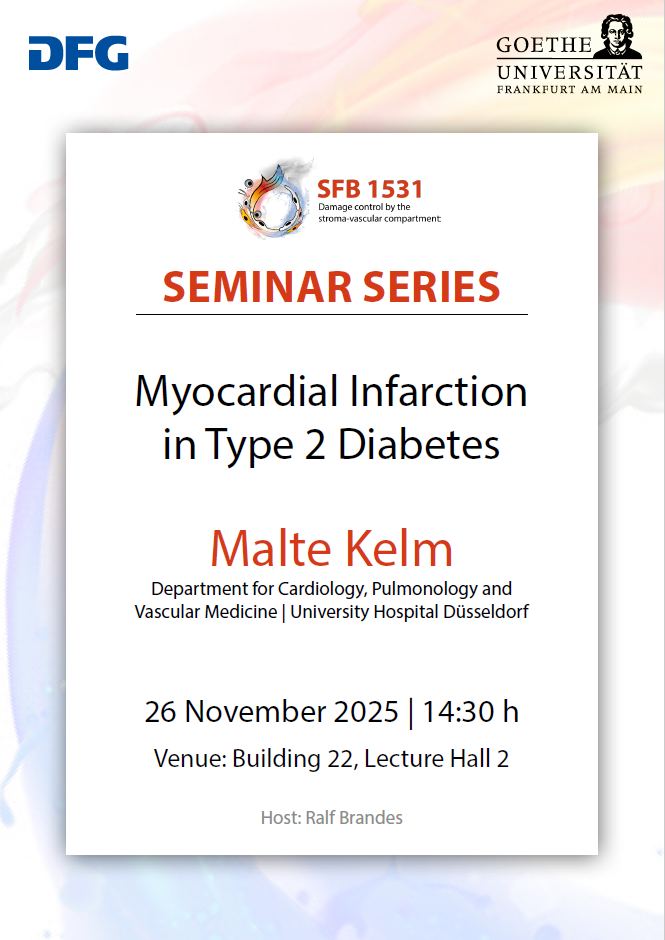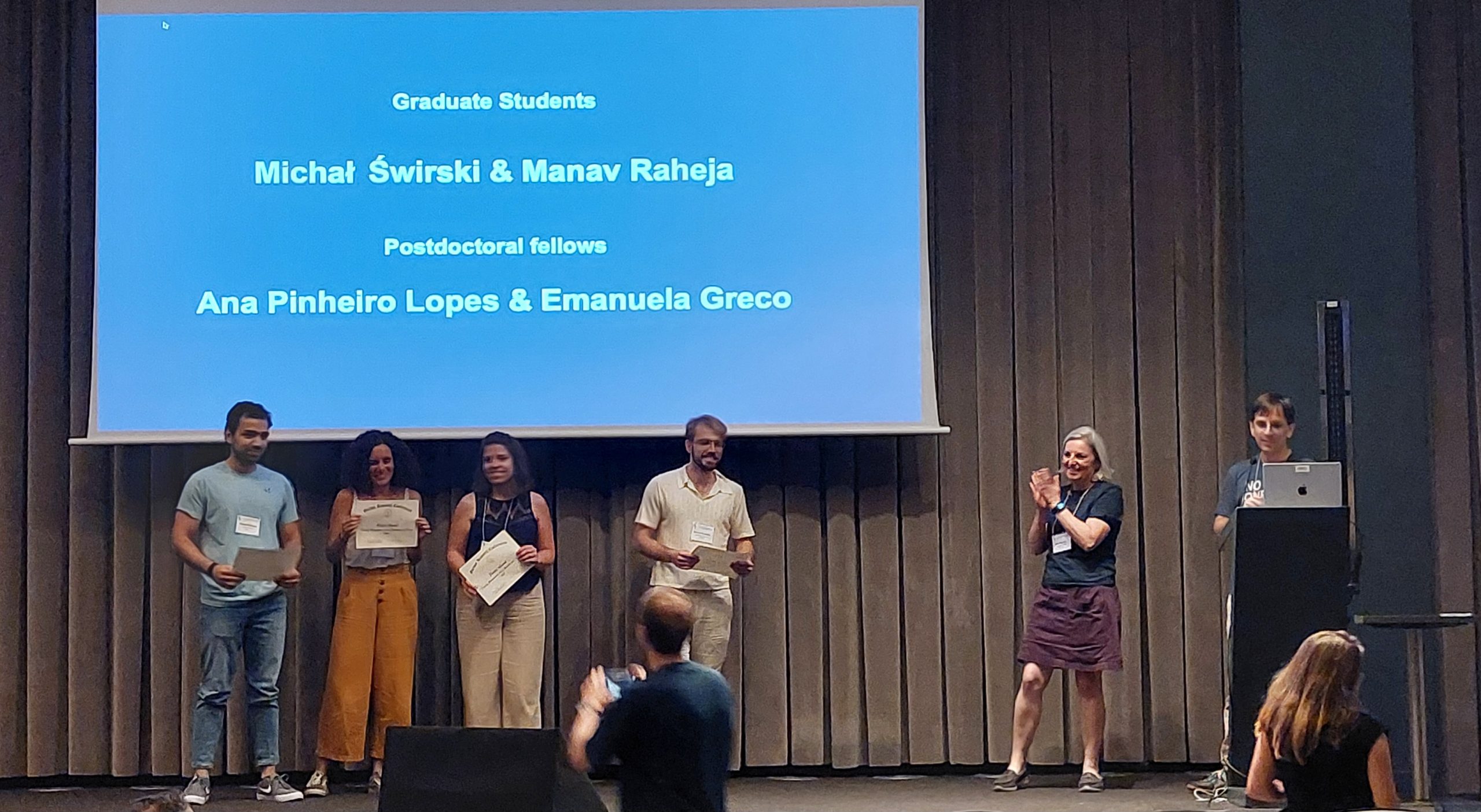Our research
The stroma-vascular compartment (SVC) is an integral part of each organ. It provides the scaffold and support structures for the specific parenchymal cells, and contains blood and lymphatic vessels as well as stroma cells. The response of an organ to insult or damage critically depends on the SVC as cells therein act as first responders and as it is the space into which inflammatory cells egress from the blood. In response to damage fibroblasts within the SVC proliferate and differentiate to generate new extracellular matrix and angiogenesis, the formation of new blood vessels, is stimulated to re-establish nutrient supply.
By focussing on the SVC of the heart, the brain and blood vessels, the collaborative research centre (CRC) “Damage control by the stroma-vascular compartment” aims to understand how different cell populations within the SVC respond to damage and contribute to the reparative response. Research on this compartment has been limited to-date largely because of the large number of different cells contained therein, their plasticity and the complicated dynamics of the damage response. Recent advances in mass spectrometry, single cell sequencing and bio-informatics (all of which are provided by service projects within our CRC), now mean that it is possible to address the kinetics of complicated inter- and intra-cellular mechanisms after damage. Our consortium is interested in the mechanisms and molecular players that orchestrate the response to injury in a multi-cellular context. We aim to identify how the interplay between different cell types is coordinated to promote repair and the restoration of function.
The CRC projects are grouped into two general categories. Section A hosts projects that study cell intrinsic mechanisms that sense, adapt and respond to damage. Experimental work focusses on elucidating metabolic, redox and epigenetic principles, mechanisms of protein quality control as well as emerging signalling mediators and their regulators in order to identify novel paradigms in damage control. The projects in Section B analyse damage control in a multicellular context and concentrate on how physiological cellular crosstalk is organized and how damage can lead to reprogramming of different cell populations.
The CRC provides us with the unique opportunity to bring together an outstanding, multi-disciplinary, diverse team of scientists to identify common denominators and differences in damage responses within different organs. Ultimately, the CRC aims to identify mechanisms that can be exploited to optimize the stroma-vascular response to damage, to improve tissue recovery and induce resilience to damage.




